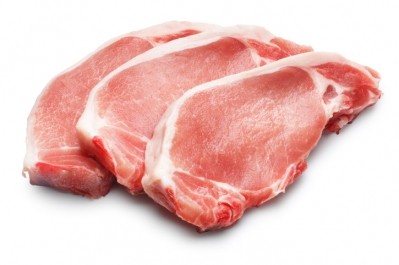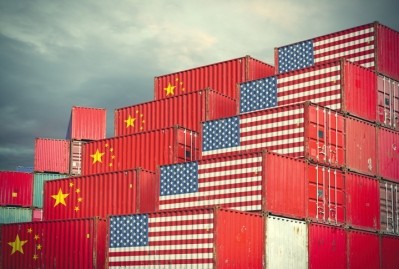Navigating the 2024 policy landscape for US animal food production

“Adding to that pressure looms the election, making any substantial legislative activity later in the year harder to come by, as neither party will want to vote for or against controversial bills,” she says.
In terms of priorities for the sector, the American Feed Industry Association (AFIA) is calling for Congress to pass the Innovative Feed Enhancement and Economic Development (Innovative FEED) Act, to improve the regulatory environment for new feed ingredients with animal health and production, food safety or environmental benefits.
“The US lags its international counterparts in approving these beneficial feed additives to the detriment of American farmers and producers. The bill, introduced in the US Senate in June and in the House of Representatives in December, enjoys bipartisan support, yet needs a legislative ‘vehicle’ to move forward in Congress.
“One potential vehicle could be the farm bill, which the AFIA also supports since it provides funding for agricultural research, animal disease preparedness and programs that would expand market access for American-made feed products.”
The US Department of Agriculture’s Market Access Program and Foreign Market Development program, both funded through the farm bill, are critical tools for the animal food industry to broaden international market opportunities, remarks Cullman. “This is especially true given the Biden administration eschewal of traditional free trade agreements. Woefully underfunded in recent years, these programs provide the US animal food industry a fighting chance to access key markets.”

Overreliance on vitamin supply from China
Cullman also flags growing concern about the US overreliance on vitamin imports from China, which, she notes, currently accounts for a whopping 78% of all US vitamin imports.
“AFIA’s leadership is developing a strategy to reduce risks and diversify the country’s vitamin supply chain, providing the Biden administration with insights to prevent future dependencies on other critical animal food inputs, such as amino acids and trace minerals. Given rising geopolitical tensions and the ongoing wars in Europe and the Middle East, these measures will be critical to head off future supply disruptions.”
Domestically, supply chain disruptions have eased slightly, yet other new challenges, such as fluctuating energy costs, labor shortages and drought, which has made river transport difficult, continue to create uncertainty in the marketplace and reduce manufacturers’ ability to deliver goods to customers in a timely and cost-efficient way, according to the AIFA lead.
Emissions reduction
It is not all doom and gloom though, she stresses.
“We have seen some positive developments internationally in recent weeks. Coming off the heels of the UN Climate Change Conference in Dubai (COP28) in December, global leaders are starting to change their tune about the importance of animal products in our diets and that agriculture is a solution – not a problem when it comes to global emissions. The AFIA welcomed a new Food and Agriculture Organization report that showed a decrease from 14.5% to 12% of global greenhouse gas emissions from livestock systems. The report also said reducing meat consumption is the second least effective way to reduce methane emissions, noting that agricultural productivity improvements will yield the highest positive impact.
“Through improved feed efficiency, upcycling and the development of feed additives and dietary strategies that reduce enteric methane production, the animal food industry is a key solution-provider to countries seeking to reduce climate impacts and enhance food security. The industry has an opportunity, now, to continue driving this message home.”
Cullman says that, over the next five to 10 years, investors, consumers, and other stakeholders up and down the food and feed value chain are expected to call for greater transparency in the US animal food industry’s sustainability efforts. The organization has partnered with the Institute for Feed Education and Research (IFEEDER) to support companies in the sector on their sustainability journeys.
“Through improved communication, advanced research and coordinated data, the industry can be more responsive to stakeholders’ concerns and drive environmental progress,” says Cullman.
The AFIA also recognizes that the US could follow its counterparts in Europe that are already regulating publicly traded companies against environmental, social and governance (ESG) measures. “Our goal is not to be caught flat-footed, but rather, develop plans that will yield meaningful, measurable progress, so that we may be at the table for these conversations in the US.”













